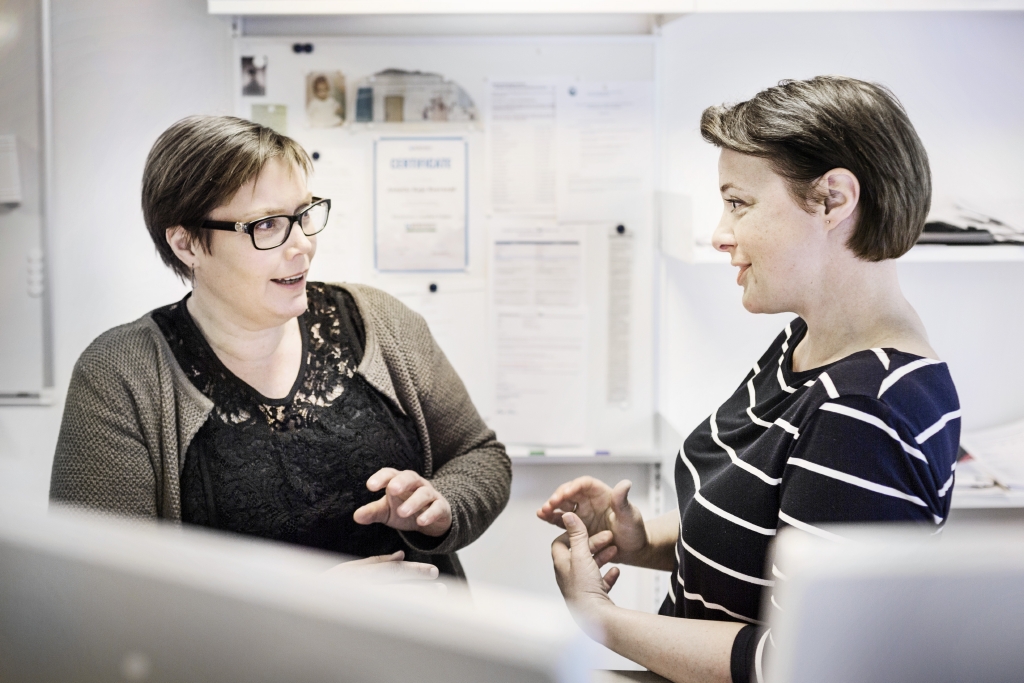Collegial feedback strengthens the quality of education
Peer review of teaching – also known as collegial feedback – can positively affect the quality of the teaching, educator identity, and the relationship between educator and student. This is evident in current university educational development research from Aarhus University.

The research project Academic development and the social dynamics of facilitated multi-source feedback among university teachers examine the outcome of collegial feedback with the help of facilitated multi-source feedback (the FMSF model).
The results show that collegial feedback among educators can foster a culture that supports the quality of teaching and the development of pedagogical competencies. Furthermore, the results show that the FMSF model can push the boundaries of established hierarchies and create new positions for feedback from both students and colleagues.
Facilitated feedback from various sources
Mette Krogh Christensen, associate professor at the Centre for Educational Development, has examined the effect of feedback with the FMSF model. She observes that collegial feedback is highly dependent on local organisational cultures and trust between the educators.
The FMSF model is an educational competence development model inspired by peer review. With the model, selected colleagues and students provide feedback on the educator’s pedagogical competencies, partly through observations of the teaching and partly via an internet-based set of questions. The questionnaire revolves around teaching, communication, collaboration, and other pedagogical competencies.
A feedback facilitator from the CED compiles the feedback into a personal and confidential report to the educator. Finally, the educator and feedback facilitator meet to talk about the educator’s strengths and potential areas of development.
Preliminary results of the research project
Results show, among other things, that the FMSF model can facilitate action-oriented considerations for the benefit of the educator’s pedagogical competency development and support an organisational learning structure through its targeted and structured feedback format.
“However, at the same time, this kind of feedback challenges established hierarchies and forms of conversation among students and teaching staff,” Mette Krogh Christensen says.
Based on the project results, she recommends that educators discuss sound principles for collegial feedback and the use of facilitated multi-source feedback to ensure tangible pedagogical outcomes of the collegial feedback.
Combination of students’ and colleagues’ feedback
The distinctive feature of the FMSF model is the combination of students’ and colleagues’ feedback. The research project documents that colleagues appreciate one another’s thorough feedback and that students find that their feedback is taken more seriously.
“But it requires more equality and psychological security between students and educators than there perhaps is,” Mette Krogh Christensen says and elaborates:
“For example, some educators express that it can feel unpleasant to ‘switch roles’ and be assessed by students. Vice versa, students described it as an advantage to be able to provide feedback directly to the educator and not just on the course as a whole. “
“Although the FMSF model was both new and unfamiliar in the studied context, it was well received and perceived as relevant and action-oriented,” Mette Krogh Christensen concludes.
Background: What is collegial feedback?
Collegial feedback is structured conversations between two or more educators about their teaching to ensure quality and further develop teaching practices.
Working with feedback between colleagues is when small groups of teaching staff discuss educational challenges, attend one another’s teaching, and subsequently have structured conversations based on this. It is a practice-based way to discuss teaching with your colleagues and thereby develop together.
Collegial feedback is an opportunity to reflect on and gain greater insight into your teaching. You can use your colleagues as extra eyes who can focus on specific areas of your teaching while you are teaching. In addition, by observing colleagues, you will get inspiration for your teaching.
At AU Educate, you can read more about how to start up collegiate feedback as scheduled lunch meetings.
